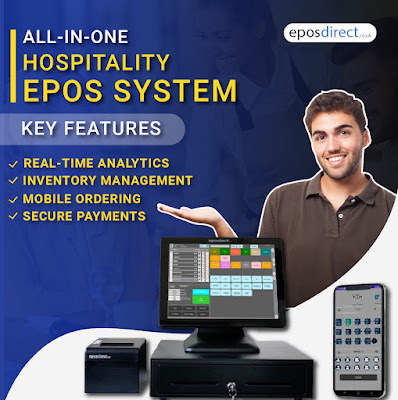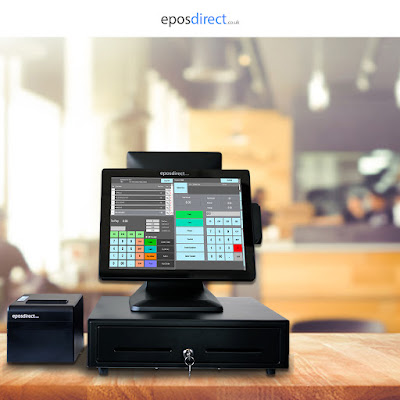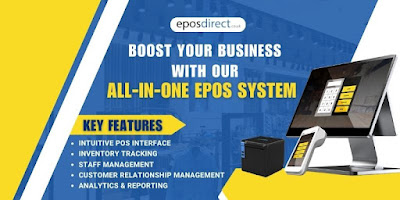Efficiency and a focus on customer
experience are paramount in today’s fast-paced world. Whether you run
a bustling restaurant, a charming bed and breakfast, or a luxurious hotel,
keeping your operations smooth and guests satisfied is key to
success. It is where Hospitality EPOS (Electronic Point of Sale) systems
come in.
Beyond the Cash Register: EPOS
Systems for Hospitality
Hospitality EPOS systems are more than just digital cash registers. They are powerful tools designed to manage all aspects of your business, from processing orders and payments to streamlining inventory and staff management. These comprehensive systems offer a suite of features that can revolutionize the way you run your hospitality establishment.
Key Features of Hospitality Till
Systems
Point-of-Sale Functionality: The core function allows
processing orders, accepting various payment methods (cash, credit cards,
contactless), and generating receipts.
Inventory Management: Track stock levels in
real-time, generate automatic purchase orders, and minimize waste with
low-stock alerts.
Table Management: Efficiently seat guests, track
orders by table, and enable easy bill splitting.
Kitchen Display System
(Restaurants): Orders
are sent directly to the kitchen for faster preparation and improved accuracy.
Customer Relationship Management
(CRM): Build customer profiles, track
loyalty points, and personalize guest experiences.
Reporting & Analytics: You can have valuable insights
like sales trends, customer behaviour, and staff performance which can help you
make a data-driven decision.
Benefits of Hospitality EPOS Systems
Here's a closer look at how
implementing a hospitality
EPOS system can benefit your business:
Improved Efficiency: EPOS systems streamline your
operations and automate processes such like taking orders and processing them, and
help in reducing wait times. Staff can focus in providing better customer
service rather than manual tasks.
Enhanced Customer Experience: Faster service, accurate
orders, and efficient payments contribute to a more positive customer
experience. EPOS systems can also integrate with online ordering platforms,
allowing for convenient takeout and delivery options.
Better Inventory Management: Real-time stock tracking helps
prevent overstocking and under stocking. EPOS systems can generate automatic
purchase orders, ensuring you have the necessary supplies to meet customer
demand. This reduces waste and optimizes inventory costs.
Data-Driven Decision Making: EPOS
systems for Hospitality provide comprehensive reports and analytics.
You can gain insights into sales trends, popular menu items, staff performance,
and customer behaviour. This valuable data allows you to make
informed decisions regarding menu pricing, staffing schedules, marketing
strategies, and overall business operations.
Improved Staff Training: User-friendly EPOS systems are
easy for staff to learn, minimizing training time. This allows them
to become more productive quickly and provide better customer service.
Increased Revenue: Streamlined operations,
efficient inventory management, and improved customer experiences can all lead
to increased revenue for your hospitality business.
Additional Advantages of EPOS System
for Restaurant
Integration with Other Systems: Many hospitality EPOS systems
integrate seamlessly with accounting software, reservation systems, and online
ordering platforms. This creates a centralized hub for managing
your entire business, reducing data entry errors and improving
overall efficiency.
Improved Scalability: EPOS systems are scalable,
allowing you to add features and functionality as your business grows. This makes
them a suitable option for businesses of all sizes, from small cafes to large
hotel chains.
Enhanced Security: Hospitality EPOS systems offer
robust security features to protect customer data and financial
information.
Choosing the Right Hospitality EPOS
System
With a variety
of hospitality EPOS systems
available, choosing the right one for your business is crucial.
Consider factors like your specific needs, budget, and the size and
type of your establishment. Here are some additional tips for selecting a
hospitality EPOS system:
Identify your needs: Make a list of
the features that are most important to your business.
Do your research: Compare different EPOS systems
and their features. Read reviews and ask for recommendations from other hospitality
businesses.
Consider cloud-based vs. on-premise
systems: Cloud-based systems offer
greater flexibility and scalability, while on-premise systems provide more
control over data security.
Request a demo: Most EPOS vendors offer free
demos, allowing you to experience the system firsthand.
Investing in Your Success:
Hospitality EPOS Systems
By implementing a hospitality EPOS system, you can streamline your operations, improve customer experience, make data-driven decisions, and ultimately increase your business's profitability. In today's competitive landscape, a hospitality EPOS system is not just a helpful tool, it's a valuable investment in the success of your business.



